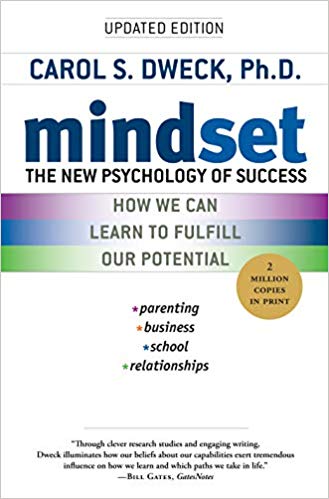

This article is an excerpt from the Shortform summary of "Mindset" by Carol Dweck. Shortform has the world's best summaries of books you should be reading.
Like this article? Sign up for a free trial here .
Many children, especially young girls, are taught that their value lies in their perfection, and that this perfection shouldn’t take any effort. But effortless perfection is a myth, and believing in the need to demonstrate effortless perfection is a dangerous mindset.
We’ll cover Carol Dweck’s growth and fixed mindsets and why effortless perfection is a myth.
Effortless Perfection
Author Malcolm Gladwell has suggested that society values accomplishment that seems effortless over achievement through work and practice. We like superheroes with extraordinary abilities to easily surmount obstacles.
The downside of this belief can be costly. A Duke University study found anxiety and depression among female students who aspired to “effortless perfection” in appearance and in their academics. In contrast, growth-minded people believe that no one is perfect. No matter how talented you are, you have to work and improve to fulfill your potential.
Fixed Mindsets + Effortless Perfection
When you have a fixed mindset, you believe your abilities are unchangeable. You were born with certain traits and a certain amount of intelligence and that’s that. Many people are trained in this mindset from an early age — for instance, by a teacher who believed your IQ determines everything: You’re either smart or you’re dumb; you can learn or you can’t. These people also believe in effortless perfection–you shouldn’t be caught trying too hard.
When you view your abilities as unchangeable, you feel you must constantly prove yourself. If people get only a set amount of intelligence and a certain character, you want to prove you have a lot, although you secretly worry you were shortchanged. You don’t want to look stupid or fail. You strive for effortless perfection. You feel you’re being judged or rated in every situation and must measure up. Children inculcated with this mindset often fear losing their parents’ or teachers’ approval and love if they fail.
Growth Mindset
When you have a growth mindset, you believe the abilities you’re born with are a starting point you can build on with hard work, persistence, and the right learning strategies. You have a passion for learning, welcome mistakes as opportunities to learn, and seek challenges so you can stretch. You also have a greater ability to survive difficult times. You don’t believe in effortless perfection (or even perfection). You believe in growth.
The author first encountered the growth mindset as a young researcher while studying how children coped with failure. She gave kids a series of puzzles to solve, progressing from easy to difficult ones. She was surprised to find that some children loved attempting the hard puzzles, relishing the challenge and opportunity to become smarter. Until then, the author had viewed intelligence and problem-solving as fixed abilities, but watching kids learn from failure changed her mind.
Believing in the ability to learn and grow doesn’t mean believing anyone can become an Einstein or believing anyone can do anything they aspire to if they apply enough effort. But the growth mindset recognizes that you can’t predict someone’s potential or how far their passion, work, and learning can take them.
Over time, people with fixed mindsets and growth mindsets come to view the nature of success differently.
- Fixed-minded people avoid challenges because they want to feel smart and in control. In contrast, growth-minded people thrive on challenge and stretch themselves past their comfort zone.
- Fixed-minded people care about effortless perfection. To feel smart, they not only have to “get it” right away, they have to be perfect at it. In contrast, growth-minded people said they felt smart when they tried hard and made progress or were able to do something they couldn’t do before. Feeling smart was about learning.
- Fixed-minded people expect to immediately perform at high levels, exhibiting effortless perfection, without the need to learn. They don’t allow themselves time to develop or become. As a result, they get frustrated by failure and give up early. In contrast, growth-minded people expect to need to put in lots of time and effort to get better at things, and are thus more resistant to failure.
- Fixed-minded people prefer to be validated by others as capable, to be seen as geniuses. In contrast, growth-minded people aren’t afraid to acknowledge a need to learn through questioning and receiving critical feedback.
In general, in the fixed mindset world, success is about proving to yourself and others that you’re smart and talented. It’s about validation of your effortless perfection. If you fail, it means you’re not smart or talented, therefore failure is intolerable. Failure is any type of setback: a bad grade, losing a competition, not getting the job or promotion you want, being rejected. Effort is a negative — if you need it, that means you’re not smart.
In the growth mindset world where you can change, success is about stretching yourself, learning, and improving. Failure is not seizing an opportunity to learn, not striving for what’s important to you, not reaching for your potential. Effort is a positive — it helps you get smarter and increase your abilities.
Remember, mindsets are beliefs — although they’re powerful, you can change them.
One reason people with a fixed mindset feel they have to be effortlessly perfect is that they see every test or evaluation as a permanent measure of their ability.
For example, in a study of fifth graders, researchers told them that a certain test could measure their ability. Although the researchers provided no other information about the test, the fixed-mindset students concluded that it could not only measure how smart they were, but it could also measure how smart they’d be as adults, essentially defining them forever. Growth-minded students didn’t believe a test could measure how smart they were, nor did they believe it could predict how smart they’d be in the future because their intelligence was always growing.
Fixed-mindset educators do in fact believe you can measure someone’s ability and determine their potential. But those who’ve tried to do that have been wrong repeatedly. Examples of people who were told they lacked potential include Charles Darwin, Marcel Proust, Ray Charles, Elvis Presley, Lucille Ball, and Jackson Pollock.
By definition, you can’t predict potential, if it’s understood as the capacity to develop over time with effort and training. It’s impossible to be certain of how far anyone can go with effort and training. For example, many of artist Paul Cezanne’s early paintings were terrible. He needed time and effort to develop. Effortless perfection is a myth.
———End of Preview———

Like what you just read? Read the rest of the world's best summary of "Mindset" at Shortform . Learn the book's critical concepts in 20 minutes or less .
Here's what you'll find in our full Mindset summary :
- The difference between a growth and a fixed mindset
- How a fixed mindset keeps you back throughout your life: education, relationships, and career
- The 7 key ways to build a growth mindset for yourself






